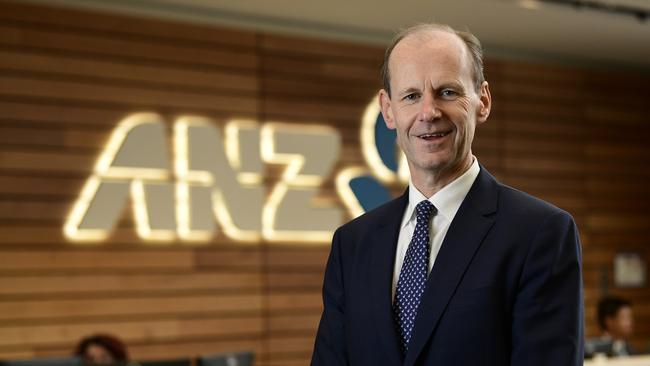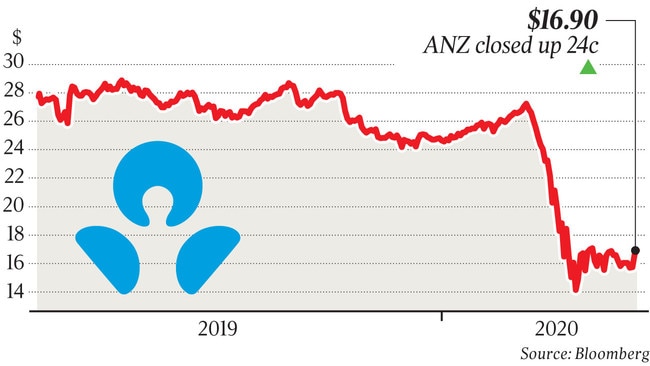‘Chance to win with united fight’
ANZ CEO Shayne Elliott has given a ringing endorsement of co-operation between the government and the private sector.

ANZ chief executive Shayne Elliott has given a ringing endorsement of the way the Morrison government and the private sector have co-operated in the fight against the COVID-19 pandemic.
Mr Elliott said one of the highlights of the “dreadful” pandemic was the alignment and co-ordination among various stakeholders in the economy.
“And I think that really differentiates the way that the community is dealing with this crisis as opposed to some that we’ve seen in the past where I think — in hindsight you could argue, and looking back as far as the Great Depression but certainly the 1990 recession in Australia — that in many aspects the regulators and the governments in those cases were too slow to lean into this,” he said in comments made to staff.
“And there might be many criticisms about the way that this is being handled, but I do not believe for a minute that anybody can criticise the scale of the alignment and co-ordination from the government and the private sector, and also the speed at which decisions are being made. So I think that actually is a very good sign.”
Mr Elliott said the challenge of the crisis was evident from the size of the fiscal intervention to curb its impact. In the nation’s last recession in the early 1990s, the government spent funds equivalent to 3 per cent of gross domestic product over a five-year period.
The fiscal intervention in the global financial crisis was more than double the size, worth 6.5 per cent of GDP, which was spent over eight months to May 2009.

In the current crisis, the government had unveiled measures equivalent to 10 per cent of GDP.
The time taken to consider and announce the packages was less than two months, he noted.
Even so, Mr Elliott said the banking industry experienced crises with “some reasonable regularity”. This ranged from the Asian financial crisis, the tech wreck and the global financial crisis.
“They look different, they have different sources, and they transmit differently through the economy,” he said. “All you can do is be prepared and make decisions very, very quickly.”
The bank’s support for customers and the broader economy, the ANZ chief said, was strongly aligned to governments in Australia and New Zealand.
“Given the nature of what we do, and the breadth of our operations, and the way we’re an integral part of the economy, what’s good for Australia and what’s good for New Zealand is good for ANZ,” he said.
“It’s in our interest that our customers have the wherewithal to get through this and come out the other side in decent shape. That is in the interest of the economy, that is in the interest of the government, that is in the interest of our regulators, and it’s absolutely in the interest of our customers and our shareholders.”
Mr Elliott said there was no doubt that the months ahead would be “extremely difficult”.
“The crisis is evolving at such a pace, it is difficult to predict how deep the economic impact will be, or how long the recovery will take,” he said. “As a result, this will be the most profound challenge many will have faced in their lifetime, including some of our own people.”
A lot, he said, would change for the long-term, including consumer behaviour, attitudes to risk, use of technology, management of supply chains and ways of working.
“Interest rates are likely to be even lower, for even longer,” Mr Elliott said. “There will no low-debt countries, governments will be larger, manufacturing more localised, and health systems reformed.’’



To join the conversation, please log in. Don't have an account? Register
Join the conversation, you are commenting as Logout